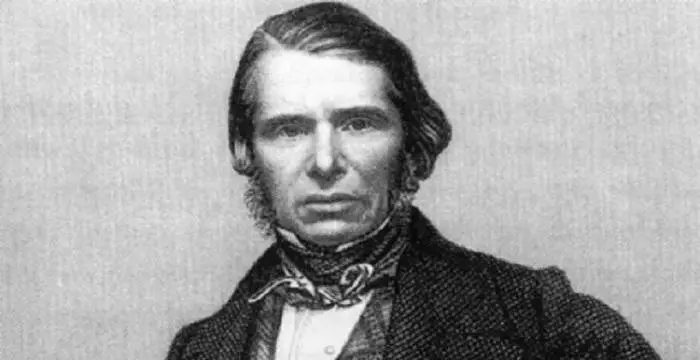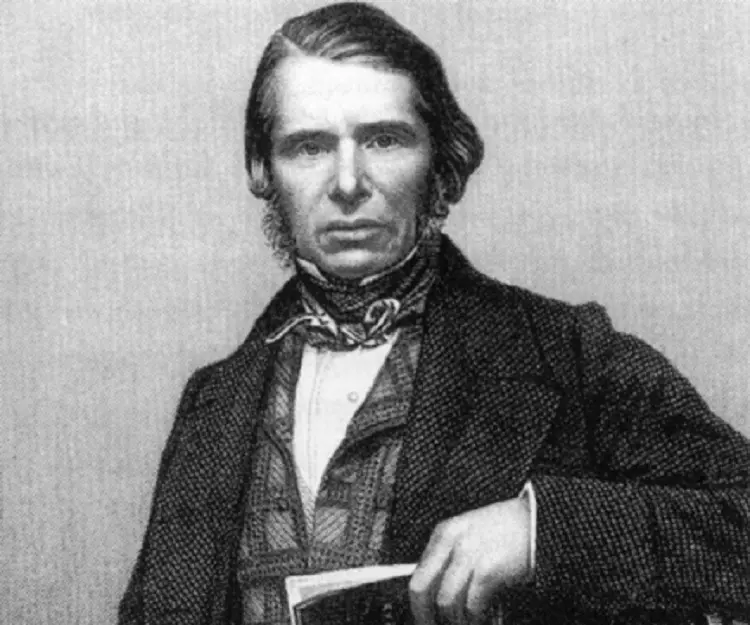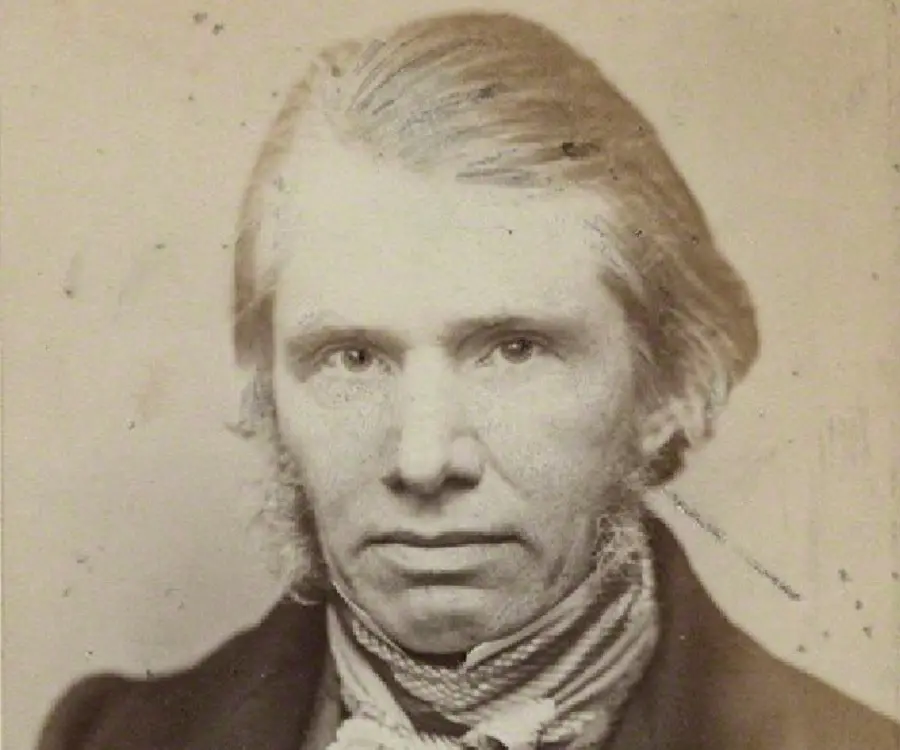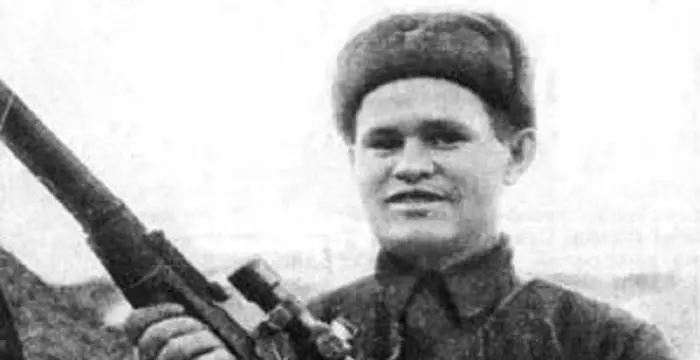
Sir Charles Trevelyan, 1st Baronet - Father of Modern British Civil Service, Timeline and Facts
Sir Charles Trevelyan, 1st Baronet's Personal Details
Charles Trevelyan was a colonial administrator of the Victorian period who is known as the father of modern British civil service
| Information | Detail |
|---|---|
| Birthday | April 2, 1807 |
| Died on | June 19, 1886 |
| Nationality | British |
| Famous | Miscellaneous, Father of Modern British Civil Service |
| Universities |
|
| Birth Place | Taunton |
| Gender | Male |
| Sun Sign | Aries |
| Born in | Taunton |
| Famous as | Father of Modern British Civil Service |
| Died at Age | 79 |
Sir Charles Trevelyan, 1st Baronet's photo
Who is Sir Charles Trevelyan, 1st Baronet?
Charles Trevelyan was a British colonial administrator and civil servant who became renowned as the father of modern British civil service. Born to a clergyman father, Trevelyan grew up to become a highly educated and qualified adult. It was for his proficiency in learning Asian language and dialect that Trevelyan, soon after his studies, earned an appointment as a writer for the East India government in India. During his stint in India, he occupied important influential position and earned quick promotions. In 1840, he returned to England to take up the position of the assistant secretary to Her Majesty’s Treasury. He served in the position until 1859. During his term, Ireland and Scotland went through a period of famine. Instead of hastening famine relief works, Trevelyan introduced laissez-faire attitude and encouraged the government for minimal intervention. Trevelyan also served as the Governor of Madras. His career’s high point came when he counselled for competitive admission examinations for civil services that secured selection of qualified and educated people as civil servants and administrators. In his life, he was honoured with baronetcy and Knight Commander of the Order of Bath title
// Famous Miscellaneous
Jason Simpson
Jason Simpson is the son of former NFL running back, broadcaster and actor O. J. Simpson. Check out this biography to know about his childhood, family, life, and little known facts about him.
Melissa Brim
Melissa Brim is the ex-girlfriend of former professional boxer Floyd Mayweather Jr. Check out this biography to know about her birthday, childhood, family life, achievements and fun facts about her.
Joyce Meyer
Joyce Meyer is a Christian author and speaker. This biography provides detailed information about her childhood, life, achievements, works & timeline
Childhood & Early Life
Charles Trevelyan was born on April 2, 1807 in Taunton, Somerset to Venerable George Trevelyan, Archdeacon of Taunton, and Harriet. His father was a Cornish clergyman.
Completing his preliminary education from Blundell’s School, young Trevelyan studied at Charterhouse School. He then enrolled at East India Company College.
Career
Trevelyan began his career in 1826 as a writer for East India Company. He was posted at the Delhi office of the Bengal Civil Service. Highly intelligent, talented and hardworking, he soon jumped up the ladder and secured himself quick promotions and influential positions.
In 1827, he served as an assistant to Sir Charles Theophilus Metcalfe, commissioner of Delhi. During his service to Metcalfe, he administered work for several important missions. Briefly, he even served as the guardian for Madhu Singh, King of Bharatpur.
During his service in India, Trevelyan helped abolish transit duties, a consistent problem that had bounded internal traders of India. In 1831, he moved to Calcutta. Therein, he took up the post of deputy secretary to the government in the political department.
Trevelyan knew the importance of education and worked hard to promote the same in India. It was due to his efforts that the British government allowed teaching of European literature and science among the Indian students. He also came up with a report that was entitled, ‘On the Education of the People of India’, in 1838.
His stint in India lasted until 1838. His last service, before returning to England, was as a secretary to the Sudder board of revenue.
In England, he took up the chair of assistant secretary to Her Majesty’s Treasury in 1840. He served in the office for nineteen long years. During his term in the office, Ireland suffered from the Great Famine which was extraordinarily enormous in magnitude.
Trevelyan greatly advocated the belief of the British upper and middle class that the famine was an Act of Providence. He even penned a book on the same titled, ‘The Irish Crisis’ through which he gave a detailed analysis of the famine, describing the same as ‘effective mechanism for reducing surplus population’. He called the crisis as ‘the judgement of God’.
Acting as the secretary to the Treasurer, Trevelyan was largely responsible for the government inactiveness in famine relief. Despite being in an influential position, he did not expand relief works and instead encouraged the government to do nothing much. Trevelyan supported Whig government’s controversial policies of minimal intervention and laissez-faire attitude. Additionally, he blamed the famine on the gentry, thus justifying government’s inaction.
Though Trevelyan’s minimal intervention attitude was with a positive intention for Ireland to become self-independent and not rely on British government for survival, the timing of his action was inaccurate as it caused uproar within the labour class.
Trevelyan ordered the shutting down of the Peelite Relief Program on July 21, 1846 with an aim to make the poor self-dependent. He believed that labourers, instead of turning to the state to take care of them, should harvest their own crops and carry out wage-producing harvest work for large farmers. However, he was ignorant of the fact that the famine had deprived labourers of any crops and farmers of any agricultural work.
The famine that had been restricted to parts of Ireland spread rapidly and engulfed the Western Highlands of Scotland as well in 1851. A crisis situation arose which led to the foundation of the Highland and Island Emigration Society by Trevelyan and Sir John McNeill. Operating from 1851 to 1858, the society sponsored the emigration of 5000 Scots to Australia.
In 1853, he came up with a new system of admission into the civil service in his report entitled, ‘The Organization of the Permanent Civil Service’. Through it, he counselled for competitive admission examinations that secured selection of a qualified body of civil servants as administrators. This gave highly educated and qualified people an opportunity to secure admission in the civil service which was previously a privilege enjoyed by the rich, influential and aristocratic only.
In 1858, Trevelyan was offered the position of the Governor of Madras Presidency which he duly accepted. Following year, he took up his duties and soon became popular for his conduct in office. His policies were welcomed by the Madras populace who soon became submissive to the new government. However, he was recalled to England following release of some government information that was considered seditious by authority.
In 1862, Trevelyan returned to India as the finance minister. He had a successful term in office that was marked by important administrative reforms. Trevelyan encouraged development of natural resources in the country through public works. His term as the finance minister ended in 1865.
Trevelyan returned to England in 1865. Towards the end of his career, he became engaged in charitable enterprises. He also supported other reforms like army commission and advancements, army organisation and so on.
Major Works
Trevelyan’s most important contribution came in 1850s with his report, ‘The Organisation of Permanent Civil Service’. Collaborated along with Sir Stafford Northcote, Trevelyan called establishment of competitive examination for the selection of civil servants. It was due to his report that educated and qualified people acquired an opportunity to secure admission in the civil service which was previously a privilege enjoyed by the rich, influential and aristocratic class. Furthermore, it ensured qualified civil servants to become future administrators.
Awards & Achievements
On April 27, 1848, Trevelyan was appointed as the KCB of the Order of Bath.
On March 2, 1874, he was created a baronet.
Personal Life & Legacy
Charles Trevelyan first married Hannah More Macaulay on December 23, 1834. The couple was blessed with a son, George Otto Trevelyan who later inherited his father’s baronetcy.
Upon the death of Hannah in August 1873, Trevelyan remarried Eleanor Anne on October 14, 1875.
He breathed his last on June 19, 1886 at Eaton Square, London.
// Famous Aries Celebrities peoples
Skai Jackson
Skai Jackson is an American child actress with huge fan following. Find more about her family & personal life, relationships, facts and more.
Shemar Moore
Shemar Moore is a model turned actor best known for his role in the television series ‘The Young and the Restless’. This biography of Shemar Moore provides detailed information about his childhood, life, achievements, works & timeline.
Vasily Zaytsev
Vasily Zatysev was a Russian sniper who served during the World War II. Check out this biography to know about his childhood, family life, achievements and fun facts about him.
Sir Charles Trevelyan, 1st Baronet biography timelines
- // 2nd Apr 1807Charles Trevelyan was born on April 2, 1807 in Taunton, Somerset to Venerable George Trevelyan, Archdeacon of Taunton, and Harriet. His father was a Cornish clergyman.
- // 1826Trevelyan began his career in 1826 as a writer for East India Company. He was posted at the Delhi office of the Bengal Civil Service. Highly intelligent, talented and hardworking, he soon jumped up the ladder and secured himself quick promotions and influential positions.
- // 1827In 1827, he served as an assistant to Sir Charles Theophilus Metcalfe, commissioner of Delhi. During his service to Metcalfe, he administered work for several important missions. Briefly, he even served as the guardian for Madhu Singh, King of Bharatpur.
- // 1831During his service in India, Trevelyan helped abolish transit duties, a consistent problem that had bounded internal traders of India. In 1831, he moved to Calcutta. Therein, he took up the post of deputy secretary to the government in the political department.
- // 23rd Dec 1834Charles Trevelyan first married Hannah More Macaulay on December 23, 1834. The couple was blessed with a son, George Otto Trevelyan who later inherited his father’s baronetcy.
- // 1838Trevelyan knew the importance of education and worked hard to promote the same in India. It was due to his efforts that the British government allowed teaching of European literature and science among the Indian students. He also came up with a report that was entitled, ‘On the Education of the People of India’, in 1838.
- // 1838His stint in India lasted until 1838. His last service, before returning to England, was as a secretary to the Sudder board of revenue.
- // 1840In England, he took up the chair of assistant secretary to Her Majesty’s Treasury in 1840. He served in the office for nineteen long years. During his term in the office, Ireland suffered from the Great Famine which was extraordinarily enormous in magnitude.
- // 21st Jul 1846Trevelyan ordered the shutting down of the Peelite Relief Program on July 21, 1846 with an aim to make the poor self-dependent. He believed that labourers, instead of turning to the state to take care of them, should harvest their own crops and carry out wage-producing harvest work for large farmers. However, he was ignorant of the fact that the famine had deprived labourers of any crops and farmers of any agricultural work.
- // 27th Apr 1848On April 27, 1848, Trevelyan was appointed as the KCB of the Order of Bath.
- // 1851The famine that had been restricted to parts of Ireland spread rapidly and engulfed the Western Highlands of Scotland as well in 1851. A crisis situation arose which led to the foundation of the Highland and Island Emigration Society by Trevelyan and Sir John McNeill. Operating from 1851 to 1858, the society sponsored the emigration of 5000 Scots to Australia.
- // 1853In 1853, he came up with a new system of admission into the civil service in his report entitled, ‘The Organization of the Permanent Civil Service’. Through it, he counselled for competitive admission examinations that secured selection of a qualified body of civil servants as administrators. This gave highly educated and qualified people an opportunity to secure admission in the civil service which was previously a privilege enjoyed by the rich, influential and aristocratic only.
- // 1858In 1858, Trevelyan was offered the position of the Governor of Madras Presidency which he duly accepted. Following year, he took up his duties and soon became popular for his conduct in office. His policies were welcomed by the Madras populace who soon became submissive to the new government. However, he was recalled to England following release of some government information that was considered seditious by authority.
- // 1862 To 1865In 1862, Trevelyan returned to India as the finance minister. He had a successful term in office that was marked by important administrative reforms. Trevelyan encouraged development of natural resources in the country through public works. His term as the finance minister ended in 1865.
- // 1865Trevelyan returned to England in 1865. Towards the end of his career, he became engaged in charitable enterprises. He also supported other reforms like army commission and advancements, army organisation and so on.
- // Aug 1873 To 14th Oct 1875Upon the death of Hannah in August 1873, Trevelyan remarried Eleanor Anne on October 14, 1875.
- // 2nd Mar 1874On March 2, 1874, he was created a baronet.
- // 19th Jun 1886He breathed his last on June 19, 1886 at Eaton Square, London.
// Famous British peoples
Wentworth Miller
Wentworth Miller is an American actor and screenwriter who achieved recognition for his role in the TV series ‘Prison Break’.
Sophie Reade
Sophie Victoria Reade is a British model and reality show star. Let’s take a look at her family and personal life, including her age, birthday, boyfriends, and some interesting facts.
Josh Temple
Check out all that you wanted to know about Josh Temple (Slogoman), the famous British YouTube Personality; his birthday, his family and personal life, his girlfriends, fun trivia facts and more.
Yammy Xox
Check out all that you wanted to know about Yammy Xox, the famous British YouTube Personality; her birthday, her family and personal life, her boyfriends, fun trivia facts and more.
Grian
Grian is an English YouTube gamer and social media influencer. Check out this biography to know about his birthday, childhood, family life, achievements and fun facts about him.
Benjamin Atkinson
Benjamin Atkinson is the son of the world-renowned British actor and comedian, Rowan Atkinson. Check out this biography to know about his childhood, family, personal life, including his age, birthday, etc.
Sir Charles Trevelyan, 1st Baronet's FAQ
What is Sir Charles Trevelyan, 1st Baronet birthday?
Sir Charles Trevelyan, 1st Baronet was born at 1807-04-02
When was Sir Charles Trevelyan, 1st Baronet died?
Sir Charles Trevelyan, 1st Baronet was died at 1886-06-19
Which age was Sir Charles Trevelyan, 1st Baronet died?
Sir Charles Trevelyan, 1st Baronet was died at age 79
Where is Sir Charles Trevelyan, 1st Baronet's birth place?
Sir Charles Trevelyan, 1st Baronet was born in Taunton
What is Sir Charles Trevelyan, 1st Baronet nationalities?
Sir Charles Trevelyan, 1st Baronet's nationalities is British
What was Sir Charles Trevelyan, 1st Baronet universities?
Sir Charles Trevelyan, 1st Baronet studied at Blundell's School, East India Company College, Charterhouse School, Haileybury and Imperial Service College
What is Sir Charles Trevelyan, 1st Baronet's sun sign?
Sir Charles Trevelyan, 1st Baronet is Aries
How famous is Sir Charles Trevelyan, 1st Baronet?
Sir Charles Trevelyan, 1st Baronet is famouse as Father of Modern British Civil Service













